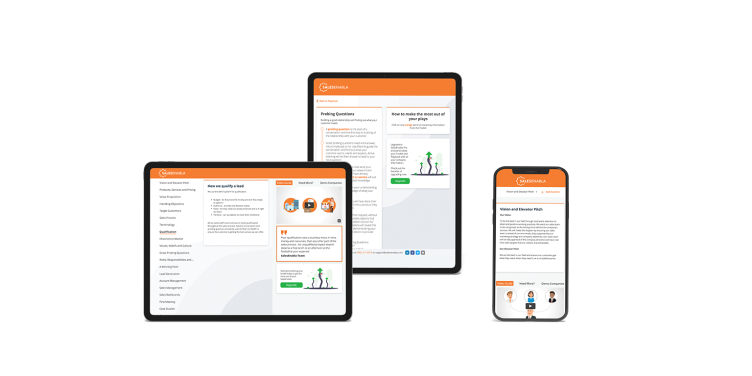No doubt like me you’re seeing the term ‘Playbook’ appearing in more and more posts ranging from those helping your business to those helping your personal finances.
With so much leading sales content originating in the US, I’ve been a regular consumer of such language for quite some time now. So much so that it is deeply embedded in the methodology of my consulting company, Sales Plus Profit and formulated the foundations of SalesEnabla.
That said we do have some way to go if we are to follow our American counterparts in making the terms standard sales dialogue. Indeed, of the sales sessions I delivered last year, only 14 of the 327 total delegates professed to having any form of Sales Playbook, a statistic that easily translates when you view the Google search variations between UK and USA on such language.
So, what is a Sales Playbook?
Put simply, a Sales Playbook is a cohesive way of documenting and describing all the critical information that a business needs to effectively sell its products and services. It is an invaluable tool aimed at systemising your sales wherever possible. This is not so that your salespeople are programmed to speak like a dalek, more that they have the right information, knowledge and tools at their disposal to always give them a competitive advantage.
What is in a Sales Playbook?
Some examples of useful information that often provide the basis of a sales Playbook include:
· Value Propositions
· Buyer Personas
· The Sales Process
· Qualification Methods
· Key Performance Indicators (KPIs)
· Product/Service Offerings
· Great Probing Questions
· Objection Handling
· Negotiation tactics
and much more …
What pains will it address
Implementing a Sales Playbook has many advantages and critically most of them can have a direct impact on your business’ sales and profit performance, these include although not exhaustive to:
Faster Sales Onboarding – I’ve lost count of the amount of businesses I’ve spoken to that acknowledge they should do a better job when it comes to getting new sales recruits up to speed. Having gone through the advertising, interviewing, and hiring process it’s logical that you do your absolute maximum to start getting a ROI on the time, effort and energy that you have already invested in the process? By providing your company knowledge and best-practices to new recruits ahead of their first day will give them a good start and avoid wasted time.
Consistency of Pitch – it’s a long time since 1996 and the first cloning of ‘Dolly’ the sheep, and without knowing too much about where the scientists have got to with humans, we still have a long way to go to break down the inconsistencies that exist within most sales teams. This is amplified further when we consider sales teams who operate remotely or through multiple locations. To reinforce pitch best-practice across the board, if each salesperson has access to your methods and execution, consistency is likely to automatically improve and elevate sales performance.
Safeguarding your sales IP – about 15 years ago I was the unfortunate witness to a business that lost 3 key personnel at the same time. Not only did these people start up in direct competition with their previous employer, but since 2 of these people were the highest performing salespeople, having unrestricted access to the entire customer base and sales knowledge proved fatal. It wasn’t long before the originating company suffered the ultimate trading blow and went out of business. A Playbook can help combat these situations. Ensuring best-practice and key learnings are retained within the company and not lost when members leave the team,
Should I bother?
There are many reasons why business don’t have a Sales Playbook, these can range from time restraints, lack of desire (let’s be honest it can be quite dull putting together) but often it’s because people don’t even realise that it’s what they need. What I have learned from experience is that having a Sales Playbook can payback big time when it comes to even just addressing the above pains let alone any others.
Finally if you’ve ever found yourself with the same ‘hire/fire’ sales challenges that you’ve had before you could do a lot worse than referring back to a certain Mr A. Einstein, widely credited for saying, “The definition of insanity is doing the same thing over and over again, but expecting different results.”








